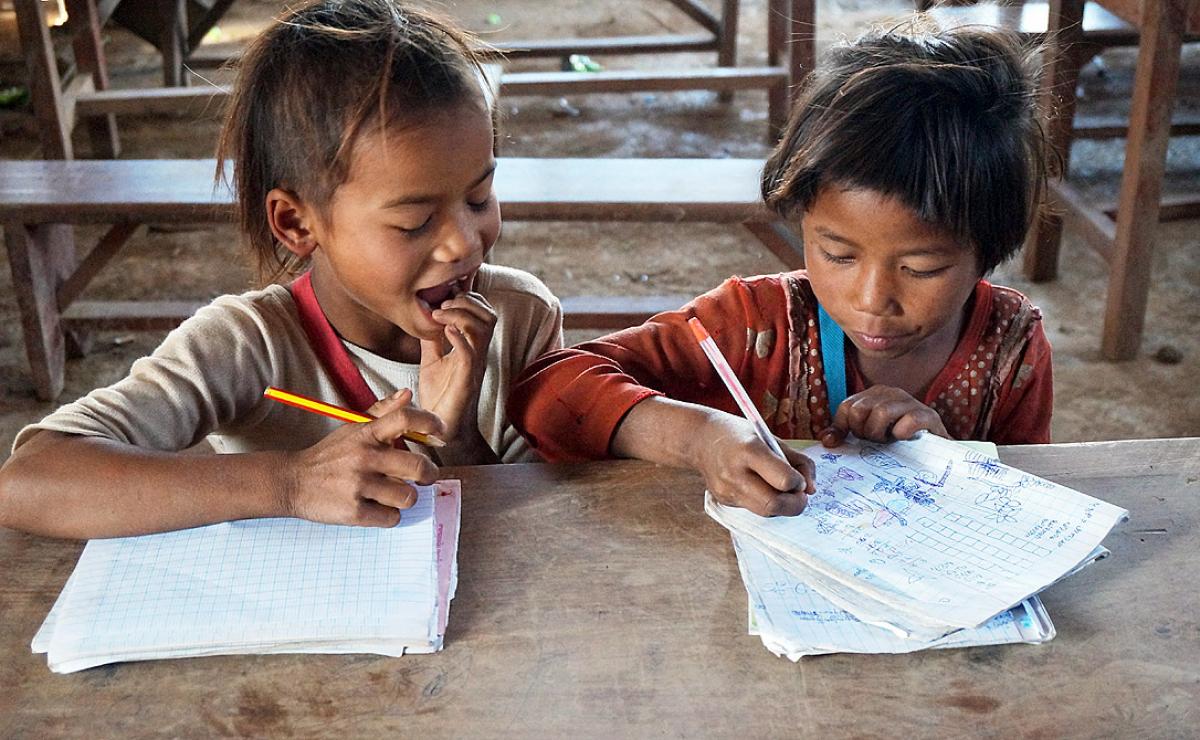Laos: School support to students with disabilities

LWF school supplies to help deaf students Vone and Viengkeo learn
Vientiane, Laos/ GENEVA, 9 July 2015 (LWI) - Vone and Viengkeo, 6 years old, are young girls like everyone else. They are neighbors in Vieng Phouka, a poor district of Laos, who enjoy learning and playing in school, meeting friends and, when their primary school lessons end, are expected to do their chores and take care of younger siblings.
However, they are especially challenged: both girls are deaf. Together with 22 other people with disabilities in the village, they are supported by the Lutheran World Federation (LWF) through a “rights-based empowerment” project.
Opportunities and future uncertain
“There are many barriers for them,” Vongmany Vongphachanh, LWF Laos Program Manager, says. “The school is in a bad condition, and teaching and learning materials are insufficient. The teacher’s skills in dealing with their disabilities are limited. Their families are poor. Their opportunities and future are uncertain.”
Through the project, the families of Vone and Viengkeo have been supported with educational materials and school equipment. “They keep the school material close to their sleeping space every day,” one of the parents translates the girls’ sign language. “The girls are very happy about receiving the education material. They make sure to bring them to school every day.”
But the project is doing more than just providing material aid. Rights-based empowerment focuses on improving access to basic social services, on income generation, capacity-building for local governance, and climate change adaptation and emergency response.
The project specifically supports very poor families, women, children and people with disabilities in very rural and indigenous communities. Just over 11,700 people in Vieng Phoukha and Nalae, some of the poorest districts in Laos, will benefit from the intervention. Most of the district’s inhabitants are Khmu, an ethnic minority, but there are also groups of Akha, Muzer, Kui and Tai Lue, all of them marginalized communities. Almost half of the project participants are women, altogether 444 are people with disabilities like Vone and Viengkeo.
Educating the community
Helping Vone and Viengkeo receive an education means educating and empowering their community. “Vone now goes to school every day and I’d like to support her with her studies,” Savanh, Vone’s father says. “However, I do not know what she learns. I am illiterate, so I cannot help her at home.”
“The girls look very happy when they are at school and play with friends. They are keen to learn and it comes to them naturally,” Phengsy, the primary school teacher adds. “But my support is insufficient for them. It is quite a challenge for me to respond to their special needs.”
The project, which started its second phase in January 2015, will run for five years. By then, Vone and Viengkeo might have finished primary school. Their success in life will also indicate whether the project has been successful. It is a long way, with many little steps. “Before I did not know if Viengkeo would ever be able to go to school,” Thongkham, Viengkeo’s mother, says. “She is deaf. How can she learn? Now I only hope she can continue going to school and playing with her friends there.”
Contribution by Alounsavath Thongphanith, LWF Laos. Edited by LWF Communications.

